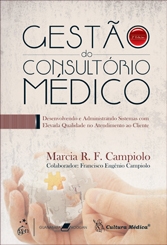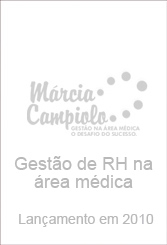 É impossível pra um homem, aprender aquilo que ele acha que já sabe
É impossível pra um homem, aprender aquilo que ele acha que já sabe 
Epiteto (Filósofo Grego, 50-130 a.C)
is a good service care enough?

We live, nowadays, in the so called “client’s era”. A great trend in the market can be observed, where all areas of the economy are seeking to elaborate and implant strategies to win maintain clients.
It’s interesting to observe the whole new apparatus of techniques that are coming up, where professionals are trying to understand the customer’s traits and aspects today, and through this understanding discover the best way not only to reach this client, but to keep him along their business.
In the healthcare field, we can observe that the market is now at a time of great changes. Ophthalmology is living today this reality intensely, since it is a major that requires large investments in improving and constantly be up to date with technology and for making new groups that help its growth, and in the other hand the rather large increase in number of professionals in this area.
There once was a time that it was enough to be a capable professional to have success.
Afterwards, this was not enough anymore, not only being a good professional, but he had to offer a good service, comfortable installations and invest in technology.
And today, we ask: Good service care is enough? Because the fact that a client receives an excellent service is no guarantee that he will return and ask for the services of this same professional?
So that we understand better the logic of how this reality functions, we need to remember that the long-term memory is linked to factors that are really remarkable. A medical consultation can be a pleasant experience, but not necessarily remarkable enough to be fully preserved in the client’s memory.
This client, during the period between seeking another ophthalmologist once again, will go through numerous pleasant situations which, because of its importance, will “occupy” the space of the memory of the medical consultation held.
This gives us the conclusion that in addition to a “good service care”, we can’t simply forget this client after that service. We should be concerned to maintain a more frequent and lasting relationship with him, so that we can not only attract new customers, but also keep those who already have received our services and that may no longer return.
For this, the old paradigm where the contact initiative comes always and exclusively from the client must be broken, and we must adopt pro-active attitudes to also take some initiatives.
It is difficult to define the best strategy which is within the limits and ethical precepts and that can add positive values to the relationship with the customer. Each professional must have creativity and be involved and integrated with the clinic’s staff, to make viable a job committed to efficiency and continuity.
A simple letter reminding the client of his last consultation date can be one example of the resources that by using them they can produce positive results.
The designed tools must be implemented inside a harmonious set associated to quality in the provided service everyday at the clinic, and it should be continuous, otherwise it will be lost, becoming innocuous the search of a stable and lasting relationship with the clients.
It is believed today that the success of the professionals in the healthcare field depends increasingly of the quality of the relationship with the client.








